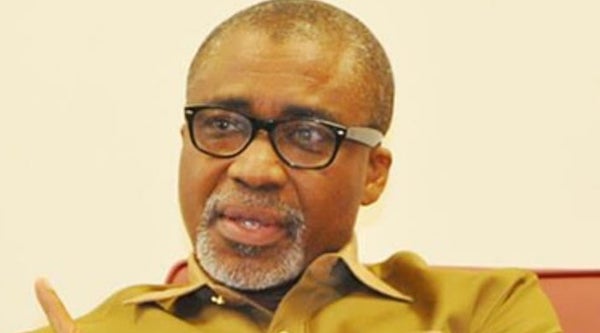Nass Republic
NASS REPUBLIC: Abaribe’s claim on separatist groups. Two other stories and a quote to remember

Last week, the Minority Leader of the Senate, Enyinnaya Abaribe, shocked several Nigerians when he claimed that, apart from the Indigenous People of Biafra (IPOB) and the Movement for the Actualisation of the Sovereign State of Biafra (MASSOB), there were over 30 other separatist groups in the South-East region.
Nigerians have largely received Abaribe’s claims with apprehension, leading to animated debates on the rightness of his findings.
Two other stories that emerged from the parliament last week caught our attention as well.
Abaribe’s claim on South-East separatist groups

Abaribe-Enyinnaya
On October 5, Senator Abaribe argued that marginalisation was the root cause of the never-ending secessionist agitations in the South-East region.
Speaking during an interview on a Channels Television’s programme, Politics Today, he said:
“One of the biggest problems the media has is that they tag everything IPOB. In the South-East, you won’t believe that there are more than 30 different separatist organisations – IPOB and the Movement for the Actualisation of the Sovereign State of Biafra (MASSOB). There are so many and each one of them comes back to the same thing.”
Abaribe’s revelation tells how complicated and decentralized the clamour for a sovereign state of Biafra had become.
No doubt, the splinter groups make the harmonization of ideas cumbersome. However, it has also been argued that the growth of amorphous groups suggests that the struggle is gradually being lost to criminal elements masquerading as freedom fighters.
Not a surprise, therefore, that the Federal Government is showing hesitance in encouraging dialogue or a political resolution of the emerging conflicts.
Abaribe’s claim must be seen as a wake-up call to the government to sit down and address issues of injustice and inequity, the twin factors that have held the country down.
NASS MEMORY LANE
Who said:
“We have to stop borrowing because we don’t know tomorrow and that is my concern. For example, the former female Petroleum Minister …went away with the sum of $60 billion. This is about five years’ Nigerian budget.
“If there is a real investigation by this government, there are thousands of them and when we investigate, we can spend the next 20 years without borrowing. We will implement the budget with our recovered money.”
Answer: See end of post
Two other stories
Reps’ concern over banditry
The House of Representatives on October 6 expressed concern at how bandits carried out their enterprise in broad daylight in total disregard for military personnel in Sokoto State.
The Sokoto episode is a sad reminder of how the country’s security situation has deteriorated in the last six years or thereabout.
Read also: NASS REPUBLIC: ‘Harassing’ Buhari to rename bandits. Two other stories and a quote to remember
It also explains why the lawmakers should go beyond merely asking the government to declare bandits as terrorists but to ensure compliance with the directive. Such decisions should not end on the pages of newspapers or other media platforms.
But beyond mouthing complaints is the need for lawmakers to also insist on accountability by demanding that the executive render returns on the monies advanced to it for managing national security.
Ndume’s take on FG’s borrowings
The Chairman of the Senate Committee on the Army, Ali Ndume, on October 9 faulted plans by President Muhammadu Buhari’s administration to take another loan from multilateral lenders to fund the 2022 budget.
Ndume, who addressed journalists in Abuja, said: “The proposal to finance the budget by borrowing more is worrisome. The government should cut down personnel and recurrent cost; increase our revenues and plug all leakages.”
The lawmaker’s opinion is one that resonates well with many Nigerians.
Beyond the rhetoric, however, Ndume may do well to lead the move to propose further legislations and implementation of cost of governance structures that can hold the executive truly accountable.
This should include, among others, a decision by federal lawmakers to make a personal sacrifices by cutting their allowances and other perks as a demonstration of their commitment to bring down the cost of governance.
Answer: Hon. Mohammed Gudaji Kazaure
Kazaure stated this while speaking to journalists on the sidelines of President Buhari’s presentation of the 2022 budget to the joint session of the National Assembly on October 7.
He represents Kazaure/Roni/Gwiwa/Yankwashi Federal Constituency of Jigawa State in the House of Representatives.
Join the conversation
Support Ripples Nigeria, hold up solutions journalism
Balanced, fearless journalism driven by data comes at huge financial costs.
As a media platform, we hold leadership accountable and will not trade the right to press freedom and free speech for a piece of cake.
If you like what we do, and are ready to uphold solutions journalism, kindly donate to the Ripples Nigeria cause.
Your support would help to ensure that citizens and institutions continue to have free access to credible and reliable information for societal development.


























